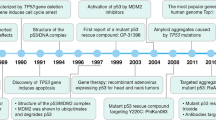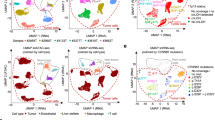Abstract
Death Associated Protein kinase (DAP kinase) a novel calmodulin-dependent serine/threonine kinase was first identified as a positive mediator of programmed cell death. Loss of DAP kinase expression was first demonstrated in highly metastatic cells, whilst re-expression of the protein resulted in delayed local tumour growth and a decreased incidence of metastasis. Although loss of DAP kinase expression has been reported in several cell lines derived from human malignancies the mechanisms responsible have not been defined. In this study we have examined 32 sporadic pituitary tumours for expression of the DAP kinase protein and transcript. In addition, we examined the methylation and deletion status of the DAP kinase CpG island as possible mechanisms for the inactivation of the DAP kinase gene. Eleven of 32 (34%) tumours had undetectable DAP kinase expression, by Western blot and/or RT–PCR analysis. Loss of DAP kinase expression was significantly (P=0.004) associated with invasive tumours (10 of 17; 59%) compared to their non-invasive (1 of 15; 7%) counterparts. Of 11 tumours that failed to express DAP kinase, five (45%) showed de novo methylation of the CpG island contained within the promoter region, while four (36%) had evidence of homozygous deletion of this region. Statistical analysis showed that loss of DAP kinase expression was significantly (P=<0.001) associated with methylation or deletion of the DAP kinase CpG island. With two exceptions, none of the remaining tumours or five histologically normal post-mortem pituitaries examined had evidence of methylation or deletion within this region. To our knowledge this is the first report that describes two mutually exclusive mechanisms associated with loss of DAP kinase gene expression. In addition, we also show that loss of the DAP kinase protein and associated genetic aberrations preferentially segregates with tumours that show an invasive phenotype.
This is a preview of subscription content, access via your institution
Access options
Subscribe to this journal
Receive 50 print issues and online access
$259.00 per year
only $5.18 per issue
Buy this article
- Purchase on Springer Link
- Instant access to full article PDF
Prices may be subject to local taxes which are calculated during checkout





Similar content being viewed by others
References
Bates AS, Farrell WE, Bicknell EJ, Talbot AJ, Broome JC, Perrett CW, Thakker RV, Clayton RN . 1997 J. Clin. Endo. Metab. 82: 818–824
Baylin SB, Herman JG, Graff JR, Vertino PM, Issa J-P . 1998 Adv. Cancer Res. 72: 141–196
Boggild MD, Jenkinson S, Pistorello M, Boscaro M, Scanarini M, Mcternan P, Perrett CW, Thakker RV, Clayton RN . 1994 J. Clin. Endo. Metab. 78: 387–392
Chomczynski P, Sacchi N . 1987 Anal. Biochem. 162: 156–159
Cohen O, Feinstein E, Kimichi A . 1997 EMBO J. 16: 998–1008
Costello JF, Berger MS, Su Huang H-J, Cavenee WK . 1996 Cancer Res. 56: 2405–2410
Deiss LP, Feinstein E, Berissi H, Cohen O, Kimichi A . 1995 Genes Dev. 9: 15–30
Esteller M, Sanchez-Cespedes M, Rosell R, Sidransky D, Baylin SB, Herman JG . 1999 Cancer Res. 59: 67–70
Evan G, Littlewood T . 1998 Science 281: 1317–1322
Farrell WE, Simpson DJ, Bicknell EJ, Talbot AJ, Bates AS, Clayton RN . 1997 Cancer Res. 57: 2703–2709
Feinstein E, Druck T, Kastury K, Berissi H, Goodart SA, Overhauser J, Kimichi A, Huebner K . 1995a Genomics 29: 305–307
Feinstein E, Kimichi A . 1995b TIBS 342–344
Grigg GW . 1996 DNA Seq. 6: 189–198
Hardy J . 1979 Recent advances in the treatment and diagnosis of pituitary tumours New York: Raven pp 375–388
Inbal B, Cohen O, Polak-Charcon S, Kopolovic J, Vadal E, Elsenbach L, Kimichi A . 1997 Nature 390: 180–184
Itoh N, Yonehara S, Ishii A, Yonehara M, Mizushima S, Sameshima M, Hase A, Seto Y, Nayata S . 1991 Cell 66: 233–243
Jones PA . 1996 Cancer Res. 56: 2463–2467
Katzenellenbogen RA, Baylin SB, Herman JG . 1999 Blood 93: 4347–4353
Kissill JL, Feinstein E, Cohen O, Jones PA, Tsai YC, Knowles MA, Eydmann ME, Kimichi A . 1997 Oncogene 15: 403–407
Laster SM, Wood JG, Gooding LR . 1998 J. Immunol. 141: 2629–2634
Lin JK, Chou CK . 1992 Cancer Res. 52: 385–388
Martin SJ, Green DR, Cotter TG . 1994 Trends Biochem. Sci. 19: 26–30
Nakatsuka S-I, Takakuwa T, Tomita Y, Miwa H, Matsuzuka F, Aozasa K . 2000 Lab. Invest. 80: 1651–1655
Novelli F, Di Pierro F, Di Celle PF, Bertini S, Affaticati P, Garotta G, Forni G . 1994 J. Immunol. 152: 496–504
Raff MC . 1992 Nature 356: 397–400
Raveh T, Droguett G, Horwitz MS, DePinho RA, Kimichi A . 2001 Nat. Cell. Biol. 3: 1–7
Sanchez-Cespedes M, Esteller M, Nawroz-Danish H, Yoo GH, Koch WM, Jen J, Herman JG, Sidransky D . 2000 Cancer Res. 60: 892–895
Schwartz LM, Osborne BA . 1993 Immunol. Today 14: 582–590
Simpson DJ, Bicknell EJ, McNicol AM, Clayton RN, Farrell WE . 1999a Genes, Chromosomes Cancer 24: 328–336
Simpson DJ, Frost SJ, Bicknell JE, Broome JC, McNicol AM, Clayton RN, Farrell WE . 2001 Carcinogenesis 22: 101–106
Simpson DJ, Hibberts NA, McNicol AM, Clayton RN, Farrell WE . 2000 Cancer Res. 60: 1211–1216
Simpson DJ, Magnay J, Bicknell EJ, Barkan AL, McNicol AM, Clayton RN, Farrell WE . 1999b Cancer Res. 59: 1562–1566
Tang X, Khuri FR, Lee JJ, Kemp BL, Liu D, Hong WK, Mao L . 2000 J. Natl. Cancer Inst. 92: 1511–1516
Ueki T, Toyota M, Sohn T, Yeo CJ, Issa J-P J, Hruban RH, Goggins M . 2000 Cancer Res. 60: 1835–1839
Wyllie AH, Kerr JF, Currie AR . 1980 Int. Rev. Cytol. 68: 251–306
Zingg JM, Jones PA . 1997 Carcinogenesis 18: 869–882
Acknowledgements
We would like to thank Dr M Pfiefer for clinical material and Prof G Williams for valuable scientific contribution during the preparation of this manuscript.
Author information
Authors and Affiliations
Corresponding author
Rights and permissions
About this article
Cite this article
Simpson, D., Clayton, R. & Farrell, W. Preferential loss of Death Associated Protein kinase expression in invasive pituitary tumours is associated with either CpG island methylation or homozygous deletion. Oncogene 21, 1217–1224 (2002). https://doi.org/10.1038/sj.onc.1205195
Received:
Revised:
Accepted:
Published:
Issue Date:
DOI: https://doi.org/10.1038/sj.onc.1205195
Keywords
This article is cited by
-
Integrated multi-omics profiling of nonfunctioning pituitary adenomas
Pituitary (2021)
-
Identification of key genes in invasive clinically non-functioning pituitary adenoma by integrating analysis of DNA methylation and mRNA expression profiles
Journal of Translational Medicine (2019)
-
DAPK1 loss triggers tumor invasion in colorectal tumor cells
Cell Death & Disease (2019)
-
Signal transducer and activator of transcription 3 (STAT3) promoter methylation and expression in pituitary adenoma
BMC Medical Genetics (2017)
-
DNA methylation alterations in grade II- and anaplastic pleomorphic xanthoastrocytoma
BMC Cancer (2014)



